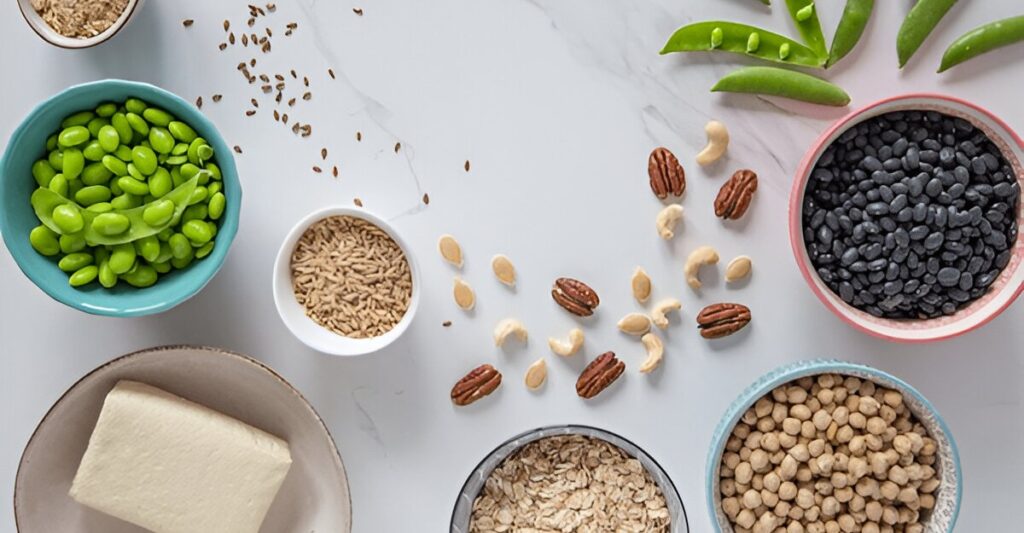Office workers often face long hours at desks, tight deadlines, and the temptation of vending machine snacks, all of which can take a toll on health and productivity. A well-planned diet can make all the difference, providing sustained energy, mental clarity, and overall wellness. In this article, we’ll explore the best diet for office workers, offering practical nutrition tips and meal ideas tailored to the demands of a busy workday.
Why Diet Matters for Office Workers
Sitting for extended periods, dealing with stress, and irregular eating patterns can lead to energy slumps, weight gain, and poor focus. The right diet supports:
- Sustained Energy: Prevents midday crashes and keeps you alert.
- Mental Clarity: Enhances focus and decision-making.
- Physical Health: Reduces the risk of chronic conditions like obesity or diabetes.
- Mood Stability: Balances blood sugar to avoid irritability.
The best diet for office workers is one that’s nutrient-dense, convenient, and sustainable, fitting seamlessly into a hectic schedule.
Key Principles of the Best Diet for Office Workers
To thrive in an office environment, focus on these dietary principles:
1. Prioritize Balanced Meals
A balanced meal includes complex carbohydrates, lean protein, and healthy fats to stabilize blood sugar and provide lasting energy. Use the “plate method”:
- Half your plate: Non-starchy vegetables (e.g., spinach, broccoli, peppers).
- One-quarter: Lean protein (e.g., chicken, tofu, eggs).
- One-quarter: Complex carbs (e.g., quinoa, sweet potatoes, brown rice).
- Add healthy fats: Avocado, nuts, or olive oil.
Example: A lunch of grilled salmon, quinoa, and a mixed green salad with olive oil dressing fuels both body and brain.
2. Choose Low-Glycemic Carbohydrates
Complex carbs release energy slowly, preventing energy spikes and crashes. Incorporate:
- Whole grains: Oats, barley, or whole-grain bread.
- Starchy vegetables: Butternut squash or sweet potatoes.
- Legumes: Lentils, chickpeas, or black beans.
Avoid refined carbs like white bread, pastries, or sugary drinks, which can lead to fatigue and poor focus.
3. Include Protein for Satiety
Protein keeps you full and supports muscle health, crucial for those with sedentary jobs. Aim for 15–25 grams per meal with sources like:
- Animal-based: Turkey, fish, Greek yogurt.
- Plant-based: Tempeh, edamame, or hummus.
A protein-rich breakfast, like scrambled eggs with spinach, helps you stay satisfied until lunch.
4. Incorporate Healthy Fats for Brain Health
Healthy fats support cognitive function and provide long-lasting energy. Include:
- Omega-3s: Salmon, walnuts, or chia seeds.
- Monounsaturated fats: Almonds, avocado, or olive oil.
Snack on a handful of mixed nuts or add avocado to your sandwich for a brain-boosting fat boost.
5. Boost Fiber Intake
Fiber promotes digestion and stabilizes blood sugar, countering the effects of prolonged sitting. Aim for 25–35 grams daily from:
- Vegetables: Kale, carrots, or zucchini.
- Fruits: Berries, apples, or pears.
- Whole grains: Farro, bulgur, or whole-wheat pasta.
A fiber-rich smoothie with spinach, berries, and flaxseeds is a quick, desk-friendly option.
6. Stay Hydrated
Dehydration can cause fatigue and poor concentration, common issues in climate-controlled offices. Drink 8–10 cups of water daily and include hydrating foods like:
- Cucumbers, watermelon, or oranges.
- Herbal teas or infused water for variety.
Keep a reusable water bottle at your desk to sip throughout the day.
7. Plan Smart Snacks
Snacks prevent energy dips and curb cravings for unhealthy office treats. Choose nutrient-dense options like:
- Greek yogurt with granola and fruit.
- Veggie sticks with hummus.
- A boiled egg with whole-grain crackers.
Prep snacks in advance to avoid relying on vending machines or coffee shop pastries.
Sample Meal Plan for Office Workers
Here’s a simple, practical meal plan to illustrate the best diet for office workers:
- Breakfast: Overnight oats with chia seeds, almond milk, berries, and a spoonful of almond butter.
- Morning Snack: A handful of almonds and an apple.
- Lunch: Grilled chicken wrap with whole-grain tortilla, mixed greens, avocado, and hummus, paired with baby carrots.
- Afternoon Snack: Greek yogurt with a sprinkle of walnuts and a drizzle of honey.
- Dinner: Baked salmon, roasted sweet potatoes, and steamed broccoli with a lemon-olive oil dressing.
This plan is portable, nutrient-dense, and designed to keep you energized all day.
Lifestyle Tips to Complement Your Diet
The best diet for office workers is even more effective when paired with healthy habits:
- Move Regularly: Take short walks, stretch, or use a standing desk to counter prolonged sitting.
- Manage Stress: Practice deep breathing or mindfulness to reduce cortisol, which can drive cravings.
- Prioritize Sleep: Aim for 7–9 hours to support energy and appetite regulation.
- Batch Prep Meals: Prepare lunches and snacks on weekends to save time during the workweek.
Common Challenges and Solutions
Office life can present dietary hurdles. Here’s how to overcome them:
- Limited Time: Prep meals in advance or choose pre-made healthy options like salads or grain bowls.
- Office Snacks: Bring your own snacks to avoid sugary treats at meetings or break rooms.
- Dining Out: Opt for grilled proteins, veggie sides, and whole-grain options when eating at restaurants or ordering takeout.
Who Can Benefit from This Diet?
The best diet for office workers is ideal for:
- Desk-bound professionals seeking sustained energy and focus.
- Those aiming to maintain or lose weight despite a sedentary job.
- Anyone wanting to improve overall health and productivity.
If you have medical conditions like diabetes or food allergies, consult a dietitian to tailor this diet to your needs.
Foods to Limit or Avoid
To optimize energy and health, minimize:
- Sugary Drinks: Soda, energy drinks, or sweetened coffee can cause energy crashes.
- Processed Snacks: Chips, cookies, or candy lack nutrients and spike blood sugar.
- Excess Caffeine: Limit to 1–2 cups daily to avoid jitteriness or sleep disruption.
Conclusion: Fuel Your Workday with Smart Nutrition
The best diet for office workers is all about balance, convenience, and nutrient density. By prioritizing complex carbs, lean proteins, healthy fats, and fiber, while staying hydrated and planning smart snacks, you can boost energy, sharpen focus, and feel great throughout the workday. Pair this diet with movement and stress management for even better results.
Ready to transform your workday? Start by packing a balanced lunch or swapping sugary snacks for a nutrient-packed alternative. Small changes can lead to big improvements in your energy, productivity, and health.


